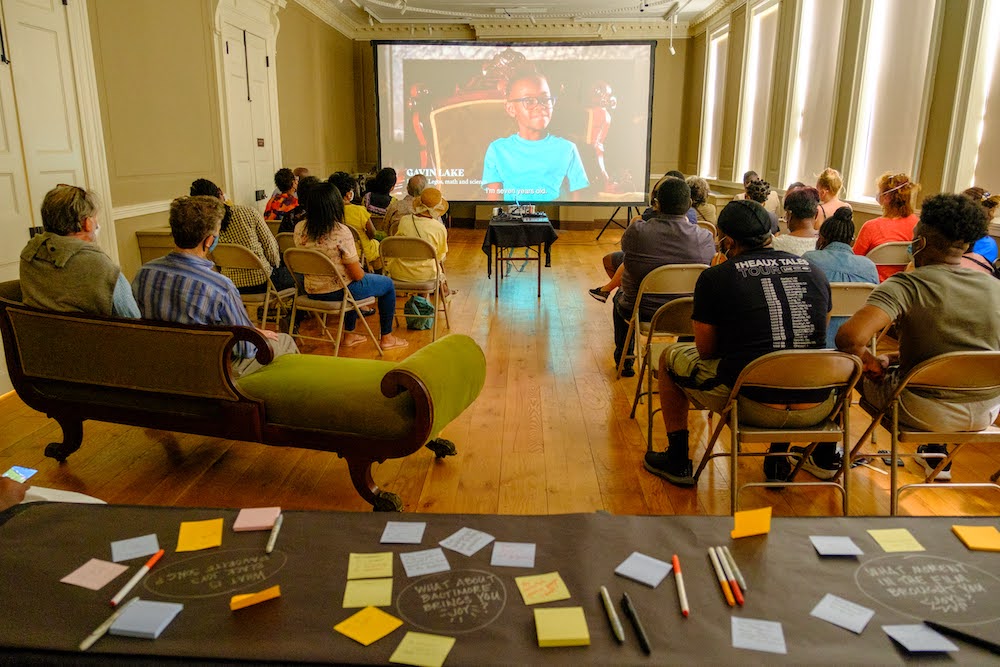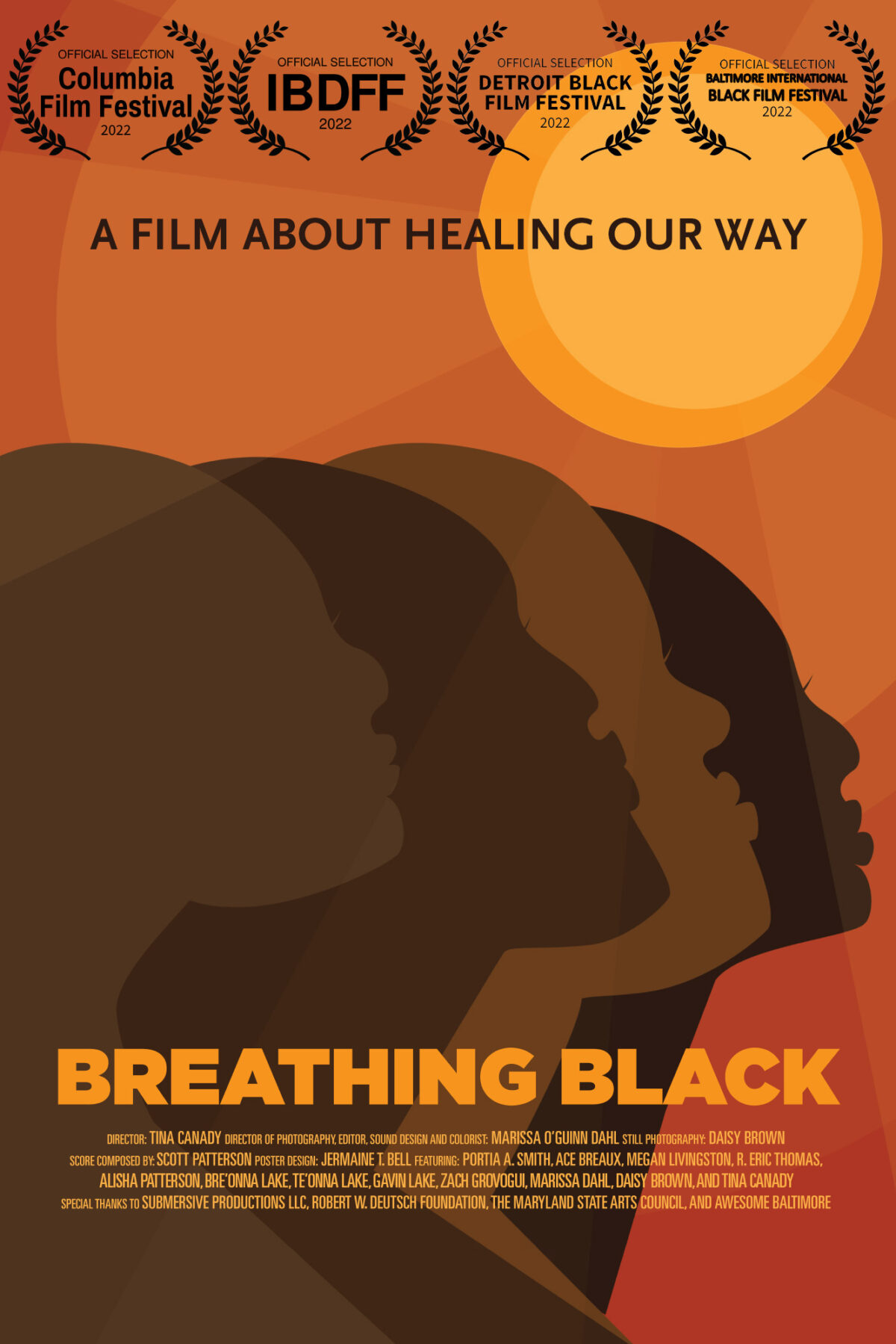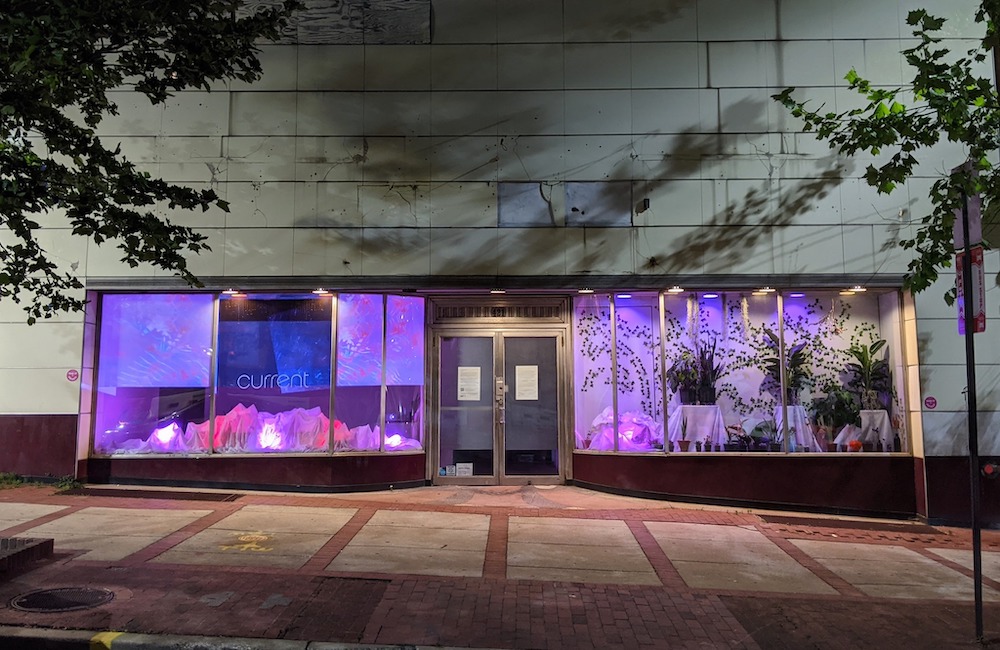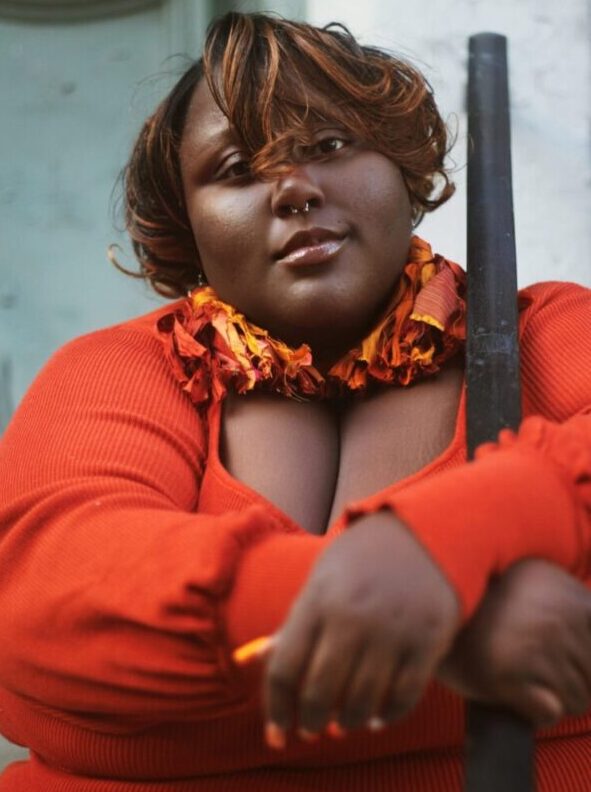Established in 2013 and stewarded by the Robert W. Deutsch Foundation, The Rubys Artist Grant program is relaunching in the Baltimore area with a new two-phase application process for its 2023 grant cycle.
Last granted in 2021 and known as “the Rubys,” the program has always maintained the goal of providing financial support for Baltimore-based artists who are working on innovative projects that could significantly impact their communities. In an email release, the Deutsch Foundation invited artists — and, seemingly aspiring technologists with artistic projects in mind — to submit new proposals in four categories: literary, visual, performing and media arts.
The Rubys share a name with Ruby Lerner, whose work creating New York City-based holistic arts support program Creative Capital inspired the grant program. Lerner highlighted the increasing relationship between, and impact of, art and tech in a fundraiser blurb for an unrelated project she’s curating.
“Artists working in traditional forms are an important part of the arts landscape,” Lerner wrote in the post on collective giving platform Grapevine. “But now there are also artists working at the juncture of several contemporary fields, including arts and technology… These pioneers are taking us to new places, not only by often creating great projects, but by encouraging us to think critically about the technologies we take for granted, and how important it is to understand their limits and consequences.”

A screening of “Breathing Black; Or How We Heal.” (Courtesy photo)
The Rubys uniquely provides direct funding to artists, rather than funding for institutions or organizations supporting them. This lets artists have more control over their work, take risks and try new mediums. Consider “Breathing Black; or How We Heal,” an interactive installation and digital storytelling project supported by the Rubys in 2020. “Breathing Black” documented the Black community’s connection to joy and healing; producer Tina Canady said that the project helped her grow her filmmaking skillset — “a newfound passion” at the time.
“It wasn’t until I had the opportunity to create ‘Breathing Black’ that I considered myself a multidisciplinary artist because I learned to direct, interview and produce,” the artist said. “I could not be more grateful for this award’s continued impact on my career, but most importantly its impact on what I now know to be possible.”

A poster for “Breathing Black; or How We Heal.” (Courtesy image)
The Deutsch Foundation, whose offices are over on N. Charles Street in Charles Village, recently hired Alex Ebstein as its senior program manager. She said that technology has been a lasting concern within these grants, even if it hasn’t been an explicitly stated core focus.
“Artists are consistently exploring new technology — both examining and critiquing its use in its practical, designed capacities and as its application can be expanded upon,” Ebstein said. “The Rubys has supported artists who’ve previously worked in traditional mediums to produce animation and film projects [like Tina] to explore other technology and how it can support their practice.”
Ebstein highlighted Amy Reid, another Baltimore-area artist whose work was infused with tech and earned Rubys funding in 2020. “Unearthing Queer Ecologies” is an A/V project that uses science and technology to reveal the imagery and sounds of queer plant life. The research resulted in a subsequent exhibition entitled “Fruiting Bodies.”
“With the support of a Rubys grant, I was able to explore a new way of making: using technology to generate audio and video from plants,” Reid said. “This snowballed into landing my first solo installation at Current Space in Baltimore, and an international performance and installation of the piece at MEXE Festival in Porto and Lisbon, Portugal.”

“Fruiting Bodies” at Current Space. (Courtesy image)
Outside of funding, the Rubys has been a valuable resource for artists in Baltimore who are looking for mentorship. Ebstein said that this year’s program jury, mentors and featured panelists include a mix of artists, writers, independent publishers, museum curators and multihyphenate artists who work throughout the arts sector. Ebstein also noted that this year, the program has partnered with Greenmount West-based maker space Open Works, which will offer its tools and classes up to grantees.
Like many local grants, the selection process for The Rubys includes 12 jurors divided over the four artistic categories. While none of this year’s jurors come from the local tech sector, Ebstein said that many have engaged with tech in their work.
As for this year’s process, Ebstein noted that the first round involves submitting 250-word project descriptions and answering questions about the project’s narrative; the second requires a longer-form application in which applicants detail how they will use the program time, which roughly lasts about a year starting in July.
More information about the Rubys Artist Grants and the application for the 2023 grant cycle, which ends on March 31, may be found at the Deutsch Foundation’s website.
Join the conversation!
Find news, events, jobs and people who share your interests on Technical.ly's open community Slack

Baltimore daily roundup: Medtech made in Baltimore; Sen. Sanders visits Morgan State; Humane Ai review debate

Baltimore daily roundup: The city's new esports lab; a conference in Wilmington; GBC reports $4B of economic activity

Baltimore daily roundup: Find your next coworking space; sea turtle legislation; Dali raided and sued


